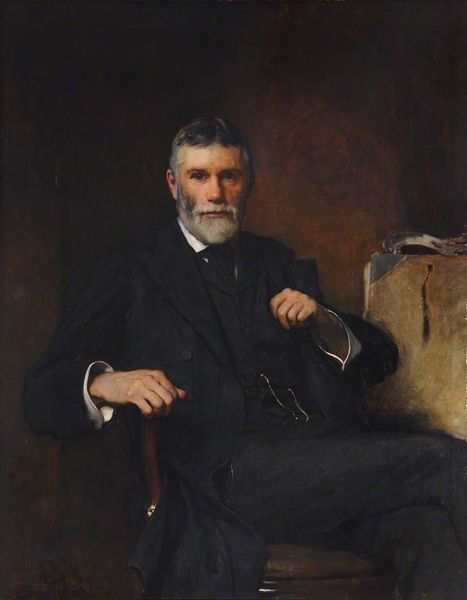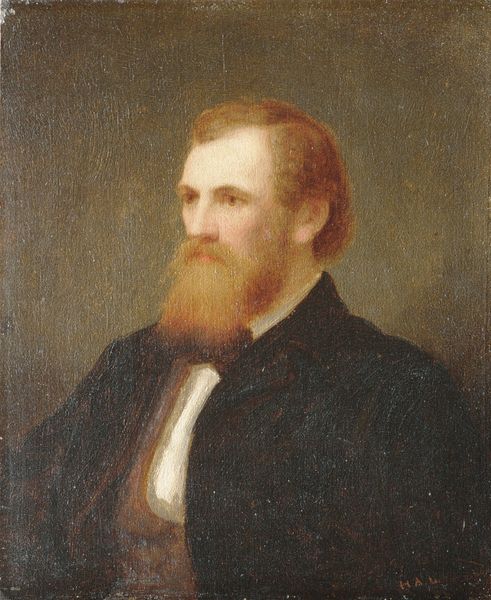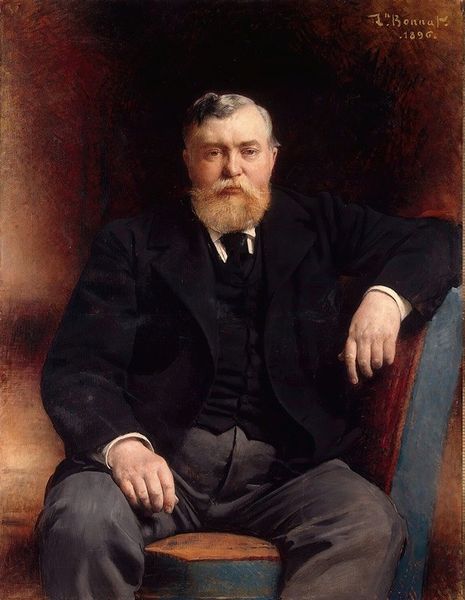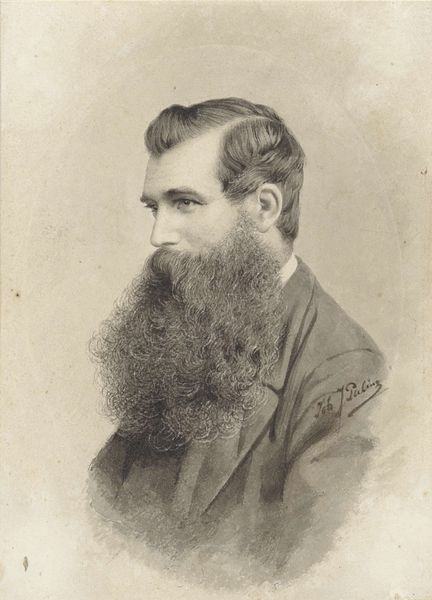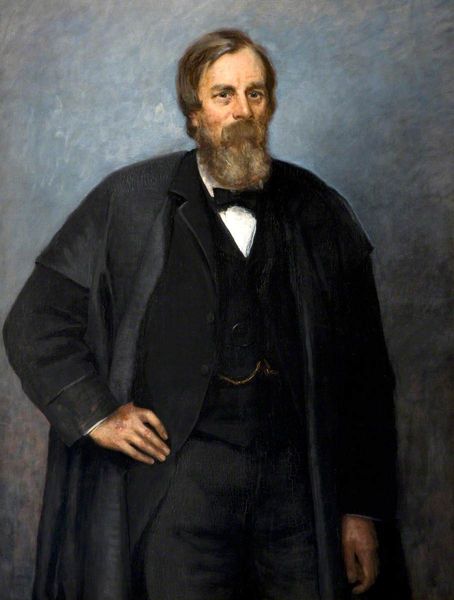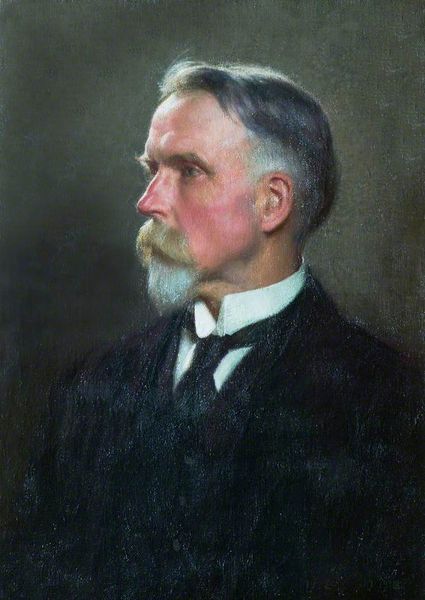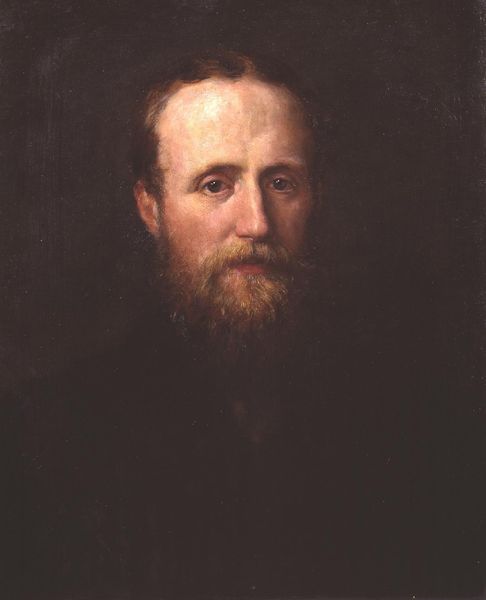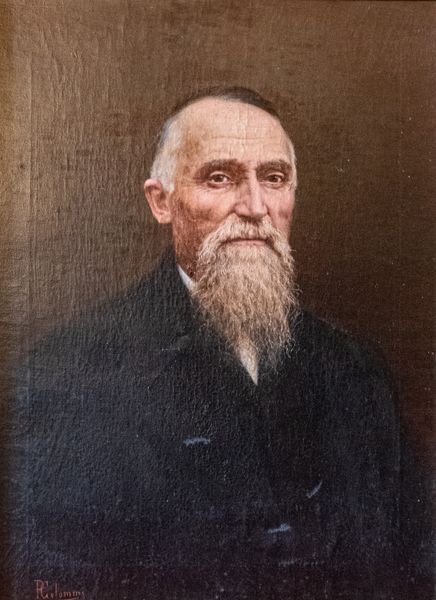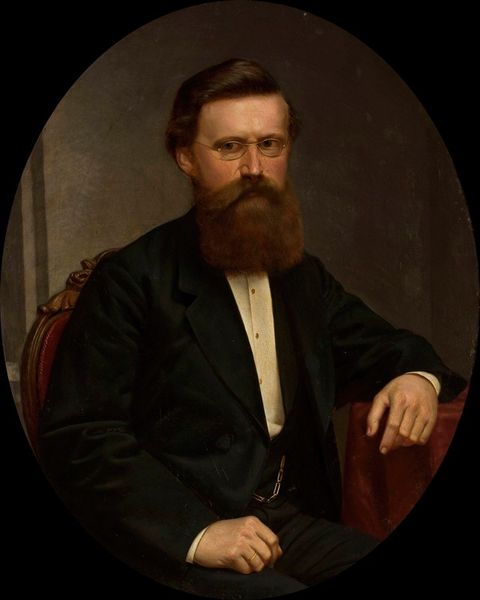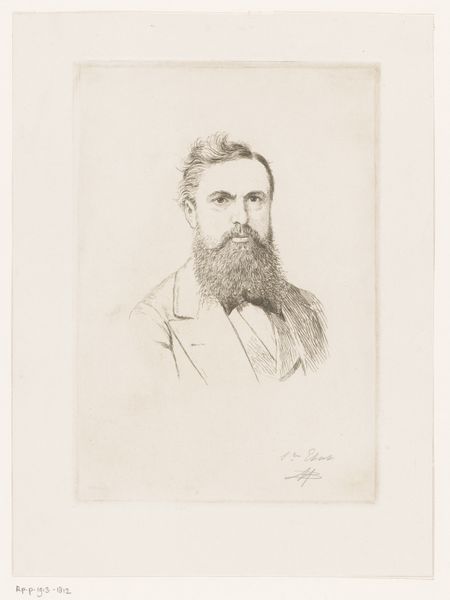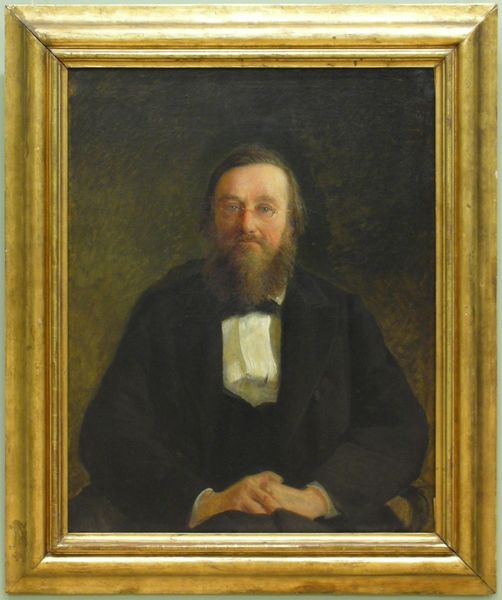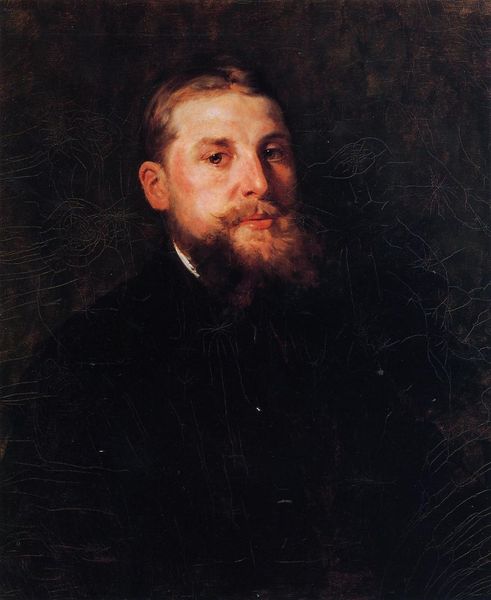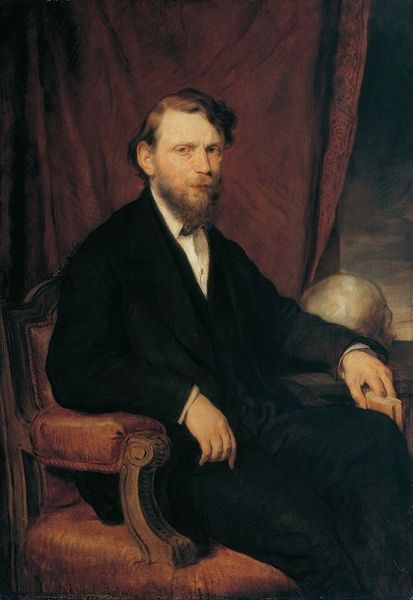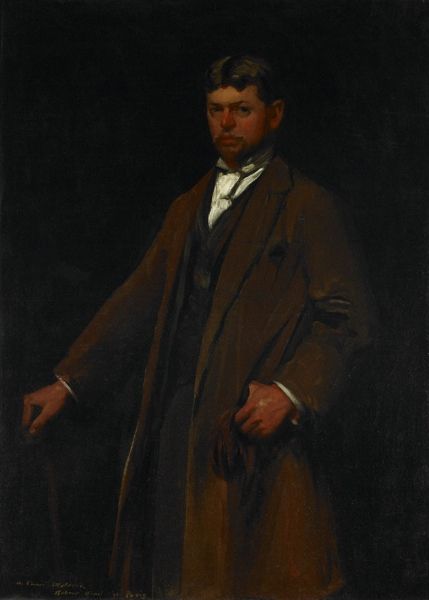
painting, oil-paint
#
portrait
#
painting
#
oil-paint
#
portrait subject
#
portrait reference
#
portrait head and shoulder
#
portrait drawing
#
facial study
#
facial portrait
#
academic-art
#
portrait art
#
fine art portrait
#
realism
#
celebrity portrait
#
digital portrait
Copyright: Public domain
This is John Pettie’s oil painting of Reverend Monro Wilson. Painted during the height of the Victorian era, a period characterized by rigid social norms and the rise of scientific thought, this portrait embodies the complexities of faith and identity. Note the somber tones and the reverend’s austere expression, which reflect the seriousness expected of religious figures at the time. The detailed rendering of Wilson’s beard and the subtle play of light across his face suggest an attempt to capture his humanity. Yet, the formal composition and dark clothing also create a sense of distance. Consider the role of the church in the 19th century. It was a source of moral authority but also a site of social and political power. How does Pettie’s portrait either challenge or uphold these traditional representations? How does the painting capture the tensions between spiritual devotion and the constraints of Victorian society, while at the same time inviting a more intimate and personal understanding of the man?
Comments
No comments
Be the first to comment and join the conversation on the ultimate creative platform.
